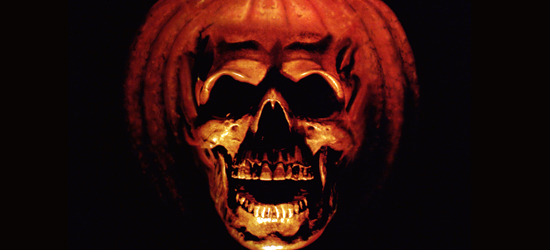OBLIGATORY HOLIDAY LISTICLE
I was going to start with saying it’s Halloween, but it isn’t anymore, however being late is still fashionable. Every holiday, every single outlet on the internet squeezes as much as they can get out out of the movie connections and this is particularly true for horror and Halloween. I don’t always care for this, especially as I spend all year watching horror pictures and listening to horror film music, but in the spirit of the just-passed season of the witch, here’s my top ten horror soundtracks at this moment. I tried to stick to rules like one per composer, but as you can see that really didn’t work out.
BRIDE OF FRANKENSTEIN
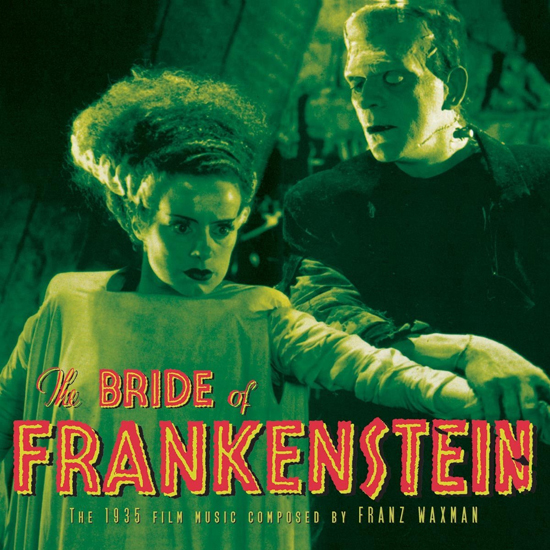
James Whale’s 1935 black comedy is still incredibly sophisticated in 2018, so you wonder what audiences thought eighty-three years ago. Emphasising the sheer lunacy of the picture is Franz Waxman’s dynamite score with its pounding monster theme, its deviant Pretorius theme, and the earworm of a motif for the Bride herself. Silva’s recording is the best out there, later issued on record by Music on Vinyl, but this is one that definitely needs a proper new accurate recording.
GODZILLA
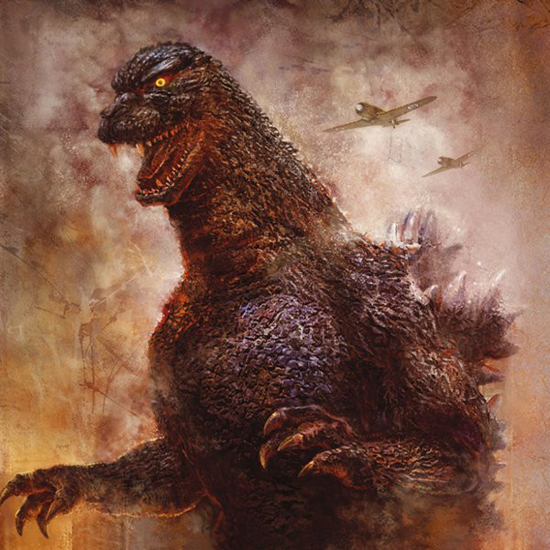
Later kaiju movies may be more along the light fantasy route, but Ishiro Honda’s original is still a haunting remembrance of the nuclear bombings of Hiroshima and Nagasaki. Akira Ifukube’s music is terrifying, alternating between huge orchestral blasts that mimic enormous explosions and the lament for both victims of the horror and mankind itself from creating the ultimate bringer of death. Death Waltz’s 2015 longplayer is essential.
JAWS
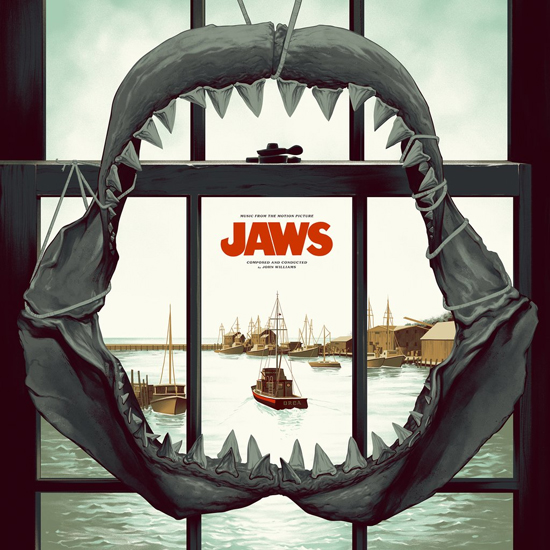
Still a terrifying movie and a score that drives the hungry, primal monster shark right to the end. John Williams’ use of those two notes connects Steiner with Carpenter and creates a feeling of absolute inevitability and dread. Combine that with the near-physical atmosphere Williams creates with cues like ‘Ben Gardner’s Boat’ and you have an absolute genius of a score. Best served through Mondo’s deluxe 2-LP set.
CARRIE
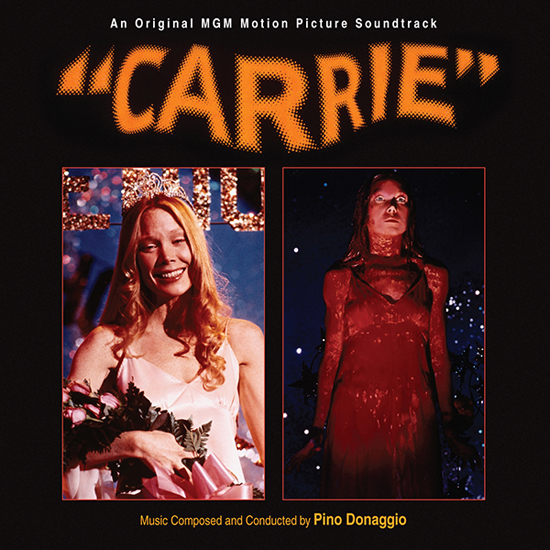
Brian De Palma’s 1976 Stephen King adaptation still stands as one of the best due to its balance of pathos and shock and was originally due to be scored by Bernard Herrmann before he sadly died after working on Taxi Driver. Nevertheless, Pino Donaggio’s score is the best it could ever need to be, led by a beautifully innocent and naive main theme for the title character and the intersection of his wonderful prom dance music and the biting score for the bucket of blood sequence. An intense tragedy of a score that stays with you – the complete score as available from Kritzerland is the best way to experience Carrie.
ORCA
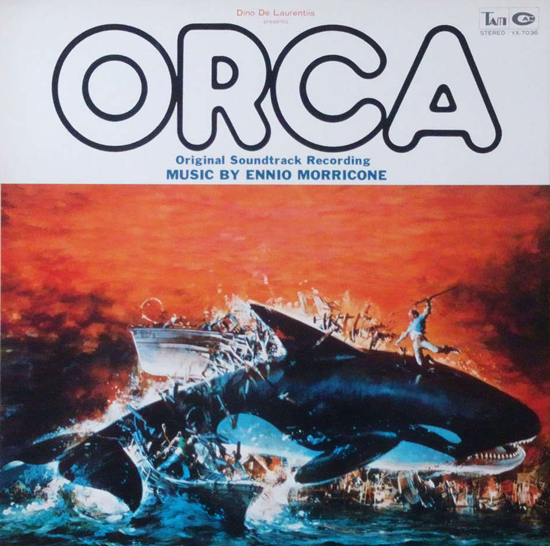
Ennio Morricone scored his fair share of scary movies in his career, notably some fantastic gialli like Bird With The Crystal Plumage and Black Belly of the Tarantula, but his best horror score was this 1977 reversal of Jaws where a killer whale goes nuts on Richard Harris and his crew after they slaughter his mate. Morricone’s piercing strings for the whale’s attacks are incredibly discomforting, but his absolutely haunting melodic theme for the whale and his mate is what makes this an extraordinary score. For the best listen, look up Toho’s original vinyl release – a CD edition was released recently by Music Box but recalled for some mysterious reason.
DAMIEN – OMEN II
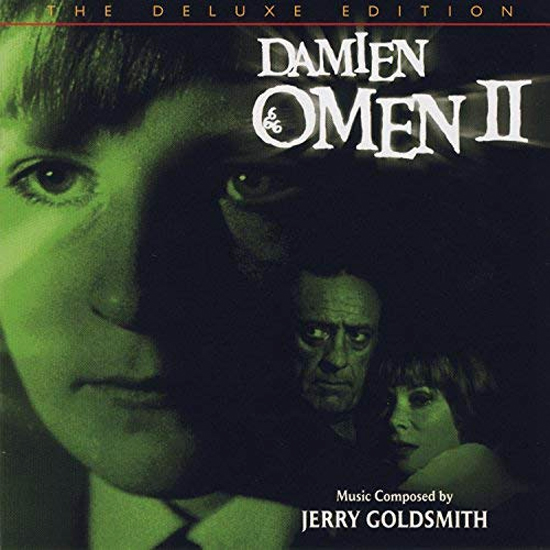
The Omen gave Jerry Goldsmith a huge career boost – especially after he won an Oscar for its black mass of a score – and he could have easily rested on his laurels for the sequel. Jerry had other ideas though, and rewrote ‘Ave Satani’ in a faster and more aggressive mode, along with a much more electronic-based soundscape, resulting in much more of a grindhouse feel. The score was completely re-recorded for the album, but if you grab the Varese Sarabande deluxe edition you get the best of both worlds and the choice of either one.
ALIEN
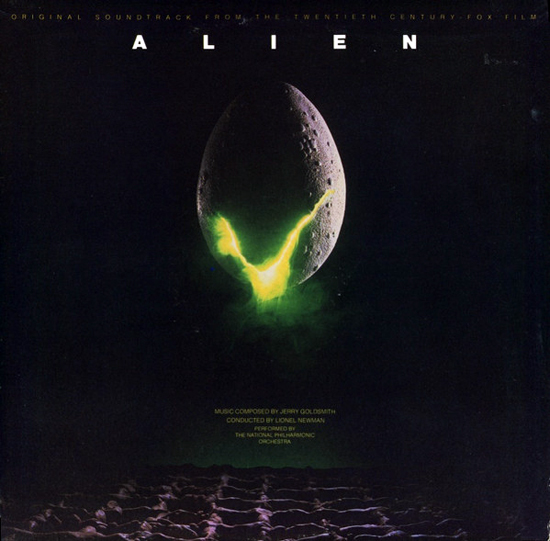
Another Goldsmith classic, Alien was famously fucked around with in the editing room by Ridley Scott to the point where nothing in the final film really represents what Goldsmith had intended. Nevertheless, it’s a huge credit to the composer that it still sounds absolutely terrifying in whatever configuration, and there are instrument combinations and phrases that to this day are echoed in film scoring. The best way to hear Alien however is the original 1979 LP programme, where Goldsmith was able to assemble the score to be heard how he wanted it to.
ZOMBIE FLESH EATERS
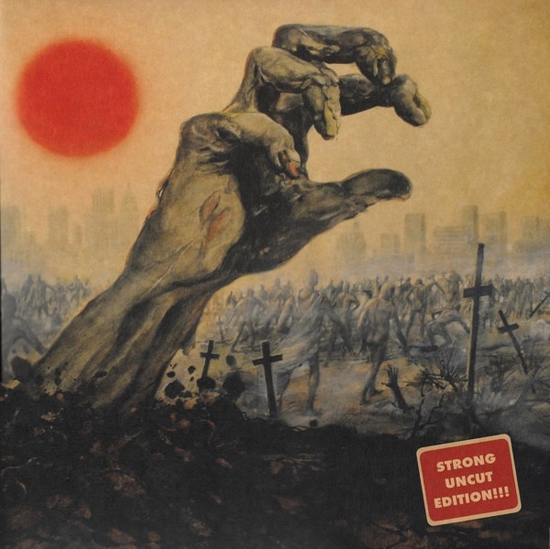
Day of the Dead was the follow-up to George Romero’s masterpiece Dawn of the Dead in everywhere but Italy, where enterprising director Lucio Fulci brought forth the majesty of Zombi 2, known in Blighty as video nasty opus Zombie Flesh Eaters. Containing Fulci’s requisite eye trauma, an impressive number of body parts, and the infamous zombie versus shark sequence, the film is an absolute riot, with Fulci’s compatriot Fabio Frizzi providing a score full of approaching dread and the stench of death. Featuring everything from grinding synths to Caribbean melodies, it’s a powerhouse of a soundtrack that ends up being dominated by the droning main theme that still gets huge applause when played in concerts. Originally Death Waltz’s inaugural release, they reissued it in 2015 and it sounds incredible.
THE FOG
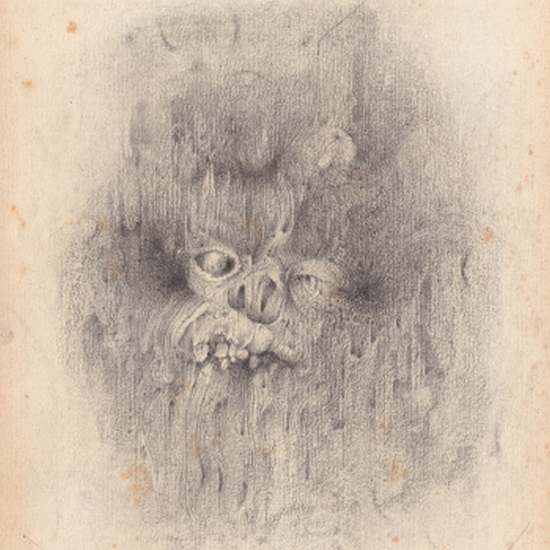
John Carpenter had to make an appearance somewhere here, and while The Fog isn’t always his one to go to for many, it is for me. Rescored at the last minute after the original cut was apparently a disaster, it’s a total mood piece and a slow burn, beginning with that atmospheric ghost story score and the hypnotic main theme before building and building until you’ll have ghostly lepers literally banging on your door wanting to come in and have a disco. Death Waltz’s 2013 pressing initially sold out in seconds before further numbers were pressed, and it’s a great program, especially with the dialogue version of the opening ghost story. “Eleven fifty-five…”
MANIAC
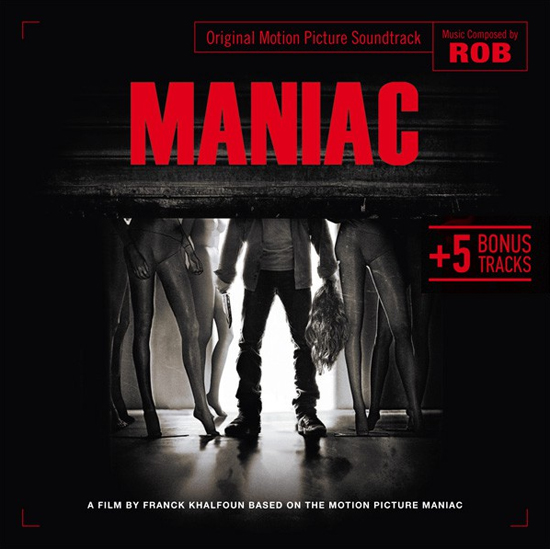
Bill Lustig’s impressively disgusting and grimy 1980 film had a fine score by Jay Chattaway, and this was complemented in 2012’s remake starring Elijah Wood with a score by Rob (aka Robin Coudert). It may be surprising to some just how flagrantly melodic this score is; don’t get me wrong, it’s still sleazy as anything, but it’s an impressive explosion of euro-synth melodies that doesn’t feel like it’s copying anything previously, capped off with an incredible song (‘Juno’, with vocals by Chloe Alper) that would fly up the charts while being described as a huge banger if released today. Death Waltz put it out on release on vinyl, but an expanded CD edition was released later by Music Box Records.
NEW RELEASES
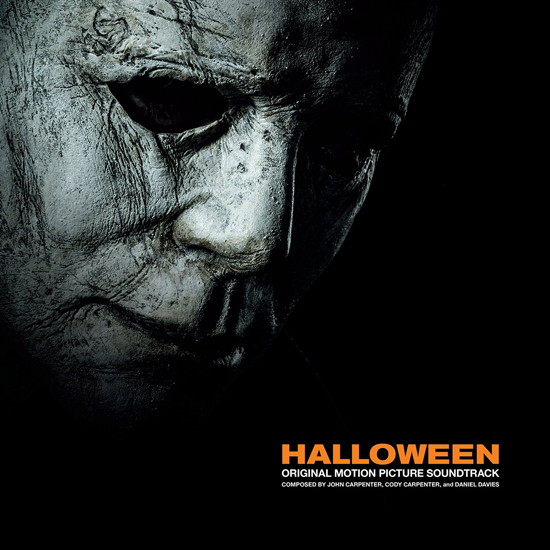
It’s not every day that you get a new John Carpenter score, especially when it’s attached to a new Michael Myers picture. HALLOWEEN (Sacred Bones, out now) is a collaboration between Carpenter, his son Cody, and Daniel Davies (another offspring of a musical luminary in the guise of The Kinks’ Dave Davies) and picks up forty years after the original film, ignoring every sequel in-between them. Musically the basic bones of the 1978 score are here, but there’s a modern urgency where the trio have infused it with a thicker and more varied sound that gives it a new dimension away from the largely piano-based isolation of the OG, with guitar and percussion adding new textures. Compositionally, they know not to mess with that iconic theme and it’s here in spades, both in its usual ominous mode but often in snippets as a foreboding mechanism, and there is a new haunting theme for Laurie using sparse piano that allows for one of the few real moments of respite on the album. ‘The Shape Stalks’ is as full of dread as ever, although there is one part where a synth overlay perhaps dilutes its power a tad. Overall Halloween is a fantastic score and a strong progression from Carpenter’s original. It’s exactly what we needed.
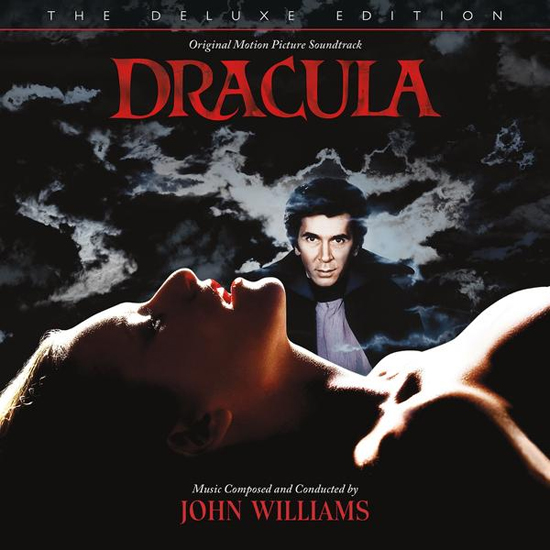
Whenever John Williams enters the horror genre we’re usually presented with something classy and DRACULA (Varese Sarabande, out now) is no exception, his score to the 1979 adaptation starring Frank Langella as a more powerfully seductive bloodsucker. With the masters thought lost for years, Varese have surprised us with a deluxe edition remastering of the complete score to the film and it’s a beautiful gift. It’s a thrilling work, written in the middle of a glorious period for Williams where he had composed several other horror scores including The Fury and Jaws 2, both of which have a similarly lush sound as Dracula. It’s a huge sweeping theatrical piece with a heightened romantic sensibility and it reminds you of a time when brass and woodwinds were allowed to be used without reproach, with the wonderful main theme dominating as you’d expect in its gothic splendour. But Williams isn’t afraid to get his hands dirty as evidenced by the great number of violin strikes and brass assaults, however there’s always an emotional throughline, like the denouement of ‘Mina Impaled’ and its regretful elegiac strings. Masterful. The sound quality is incredible too; I’m not sure what the source was but every last drop has been squeezed out of it and it’s frankly somewhat of a miracle that we have this score in this sound after being told so many times that we should forget about hearing it. A delicious Halloween treat.
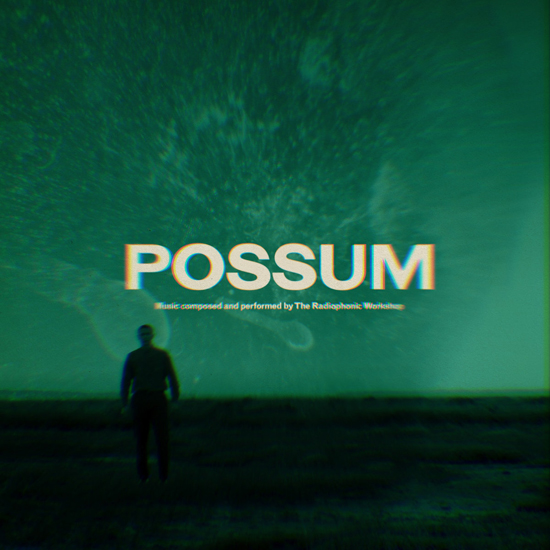
Unbelievably, POSSUM (Room 13, out now) is the first film score from the collective Radiophonic Workshop, with the group using both new and old sources to soundtrack Matthew "Garth Marenghi" Holness’ directorial debut. What follows is a tapestry which almost defies categorisation or description; "unsettling" seems to be the best phrase to settle on. It feels like the sound of a desolate British landscape with sound acting as memory, encroaching on your synapses and making you try to interpret the signals whether you want to or not. What’s brave is that there’s no attempt to introduce this concept slowly, it’s just straight off the bat and there’s nothing you can do but just hang on for dear life (which at seventy minutes long is quite the ride). There are interesting factors at work conceptually, considering the Workshop and their revolutionary in the manipulation of sound and music as pioneered by Delia Derbyshire (as an evolution of musique concrete) and befittingly some of Derbyshire’s sounds are in here. Some will see this as a simple collection of sounds and the argument of sound design and scoring will probably be raised from the dead once again, because to many there is only one way to write music. I don’t care to run through that again, I’ve started to understand that some have self-installed limitations that perhaps cannot be reconditioned. But what I can say is that Possum is certainly a dialogue, a discourse, as the Workshop’s work has always been. Defiant, challenging, terrifying, transcendent. It shit me up for sure.
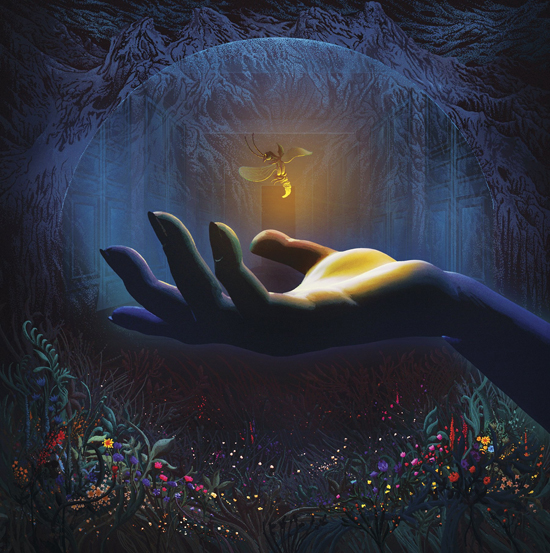
Whatever you say about the cinema of Dario Argento, he’s always managed to inspire interesting scores, especially in his earlier years of sheer genius. Waxwork had previously issued Tenebrae and have now followed that up with the incredible trio of INFERNO, PHENOMENA, and the iconic PROFONDO ROSSO. Of course the latter is the most famous and it’s no surprise why; Goblin’s music here (with contributions from original scorer Giorgio Gaslini) is perhaps the grooviest it ever was, operating on the fringes of jazz fusion, and it doesn’t hurt that the picture it’s attached to is a masterpiece of giallo. Phenomena is an equally brilliant but much nuttier approach, with Goblin this time being made up of Claudio Simonetti and Fabio Pignatelli as they fuse their neo-gothic melodies with the more obvious synth sounds of the 80s along with a more overt rock approach with guitar solos, also evidenced by the film’s use of heavy metal bands – sadly this album doesn’t include Iron Maiden’s phenomenal ‘Flash of the Blade’ as used in a memorable sequence; for that you need to own the band’s 1984 opus Powerslave, but of course you already do, right? Inferno was the sequel to Suspiria but instead of trying to match that Argento understandably went for a different approach and hired Keith Emerson (of Emerson, Lake, and Palmer). Emerson’s score feels more intricate and perhaps more intimate, with a sense of lingering tension and a somewhat intangible eeriness that gives it a completely different and perhaps welcome experience from Goblin. Each album has absolutely stunning artwork, especially Kilian Eng’s Phenomena, and the pressings are superb across the board, although my copy of Inferno had a slight bit of surface noise. Still, absolutely essential.
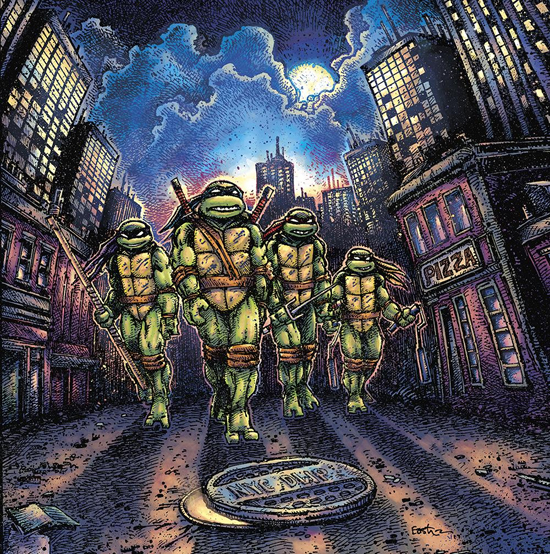
Remember 1990 and "T.U.R.T.L.E. Power"? Well those pesky sewer-dwelling adolescent amphibians are back, this time in vinyl form with TEENAGE MUTANT NINJA TURTLES* (Waxwork, out now) which presents the previously unavailable score to the film by composer John Du Prez. It’s a lively album, with Du Prez mixing orchestral vibes with synth and guitar and some decent thematic work, albeit none of it as memorable as that earworm of a cartoon theme, which for some reason has only ever made it into the end credits of the last Michael Bay movie sung by some terrible auto-tuned boyband. What’s up with that? Also from the label are two haunting soundtracks from fairly recent psychological horror movies – THE EYES OF MY MOTHER is a quiet piece, unsettling but beautiful at times and certainly not easily classified, while QUEEN OF EARTH is more esoteric, dominated by a gorgeous and hypnotic use of bells and minimalist strings. Both have wonderful, clear pressings and are out now.
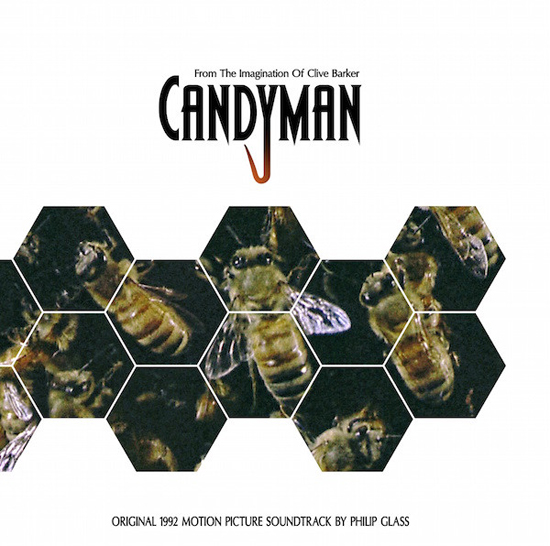
Speaking of minimalist, Philip Glass’ utterly brilliant score for CANDYMAN (One Way Static, out now) returns in a welcome repressing. It’s such a striking piece, immediately pulling you into a trance with the opening theme on celeste before Glass sends you down a different path with organ and choir. A fantastic, intense pressing with just a teensy bit of surface noise. Keeping the October theme is Michael Hoenig’s soundtrack to the 1988 remake of THE BLOB (One Way Static, out now). Following from the German composer’s electronic exploits, it’s a suitably crushing and claustrophobic affair with an apocalyptic feel – don’t expecting anything cheery here. There are some good action pieces, although your enjoyment may depend on what you think about some of the era’s synths, particularly the synclavier. Nevertheless, it’s a fine horror score on a nice, dynamic pressing.
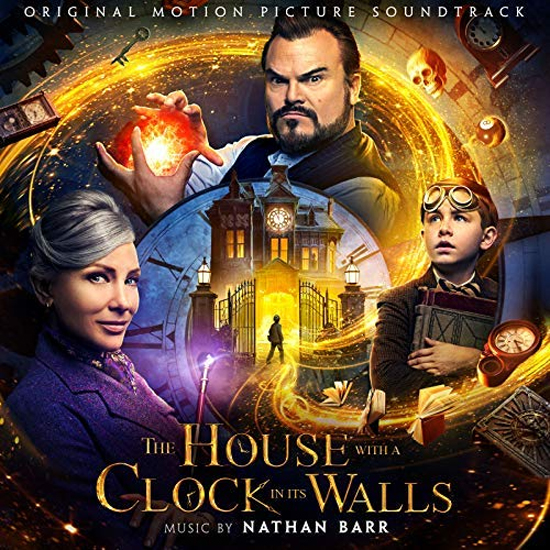
THE HOUSE WITH A CLOCK IN ITS WALLS (Back Lot Music, out now) is the latest of a long line of adaptations of spooky young adult fiction, here based on a 1973 novel by John Bellairs. Nathan Barr’s score instantly goes for a wonderfully mischievous gothic atmosphere, with some nice winding snaky woodwinds and light choir, and it’s very nice and atmospheric and you feel like it would be very suitable for the film. However, it does generally feel Elfman-lite, like we already heard this back in the 90’s. But then some people call Danny Elfman a hack**, so who knows what you may think.
*A vinyl copy of the album was not available at time of publishing so no pressing info is included
**Idiots

